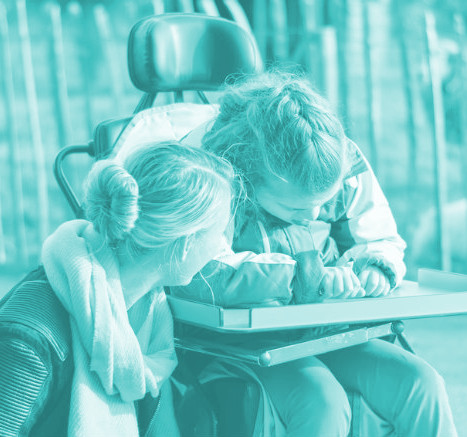Disability changes coming
 The Federal Government is set to scrap the outdated Disability Services Act and impose new standards for over 4 million Australians with disabilities.
The Federal Government is set to scrap the outdated Disability Services Act and impose new standards for over 4 million Australians with disabilities.
The changes will specifically address services outside the National Disability Insurance Scheme (NDIS) and introduce a fresh code of conduct and standards.
This legislative overhaul, now on its way to a parliamentary inquiry, carries the promise of dismantling the segregation that has isolated many disabled individuals from the broader community.
Over 610,000 Australians are currently supported by the NDIS.
Minister for Social Services Amanda Rishworth says these changes align with the evolving needs of the disability community in the 21st century.
They should also facilitate the government's response to imminent recommendations from the disability royal commission, due to emerge shortly.
The NDIS, a financial behemoth, has been a hot topic in budgetary discussions.
With a staggering projected cost of $50 billion over the next four years, the government is seeking to curb its growth.
The goal is to limit annual funding increases to no more than 8 percent by July 2026, saving over $15 billion through efficiency measures.
However, the Per Capita thinktank has revealed that for every dollar invested in the NDIS, $2.25 returns to the economy due to the positive impact on employment and healthcare costs across various sectors.
Green Senator Jordon Steele-John, a key figure in the inquiry, envisions a future where disabled individuals are integrated into housing, work, and education systems rather than being relegated to separate programs and facilities.
An inquiry, he asserts, offers a vital platform for the disability community to provide feedback and ensure that the legislation unequivocally condemns segregation as a violation of human rights.
Senator Steele-John envisions a legislative change that paves the way for greater inclusion in shared services, healthcare, and education.
The aim, he says, is to achieve disability justice and collective liberation so that no individual, regardless of their abilities, is left behind.
Meanwhile, the Albanese Government is introducing the Disability Services and Inclusion Bill 2023.
The bill, developed with input from the disability community through extensive consultations, seeks to provide agile funding, quality and safeguard standards, and a modern legislative framework to address the Royal Commission into Violence, Abuse, Neglect, and Exploitation of People with Disability.
Minister Amanda Rishworth believes this new legislation will usher in a more responsive era of Commonwealth-funded services, enhancing independence and community participation for people with disabilities beyond the NDIS. It's a progressive step to bring Australia's disability legislation into the 21st century, aligning with the priorities set by the disability community in Australia's Disability Strategy 2021-31.







 Print
Print